'Bring back measles.' Kansas legislators debate slew of COVID-inspired attacks on public health laws
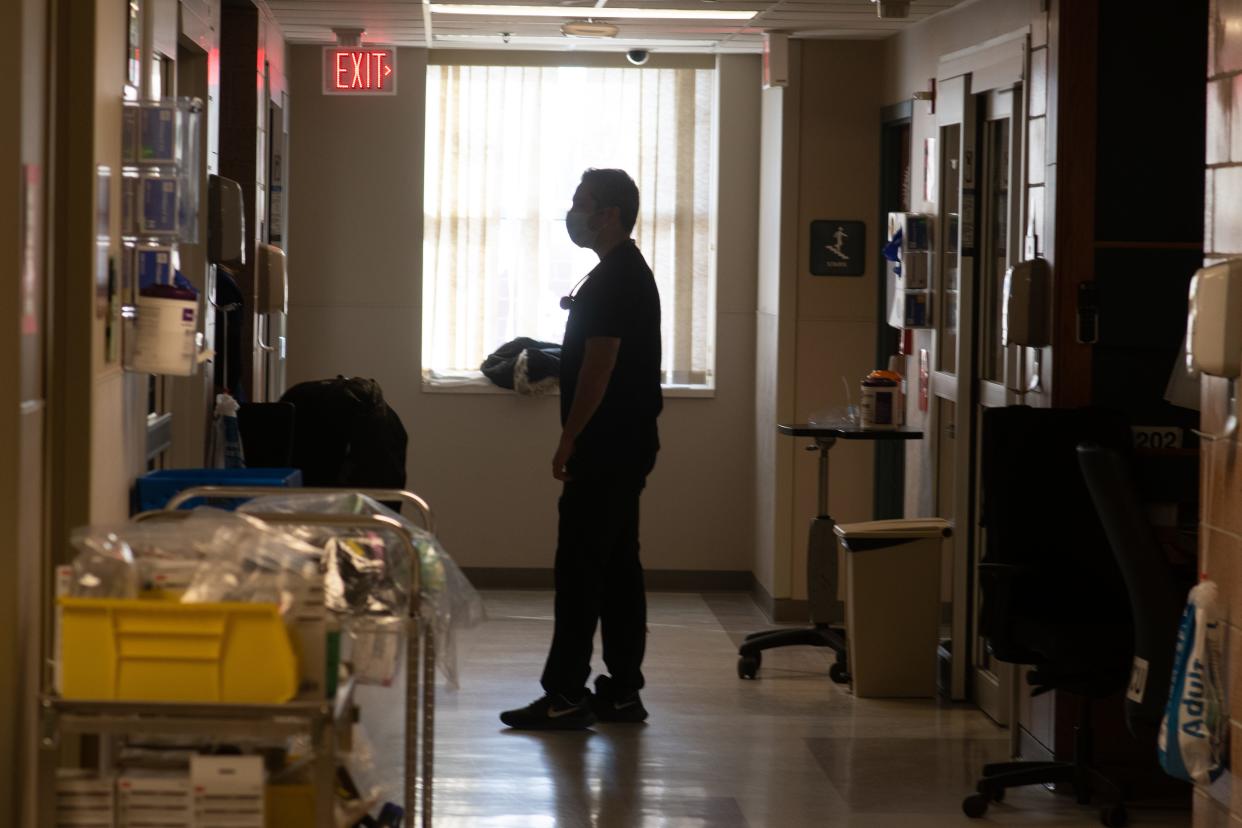
In a series of committee meetings on various legislative proposals this month, Kansas lawmakers have weighed substantially re-writing the state's public health laws designed to prevent outbreaks of infectious diseases.
Featuring comparisons equating public health measures to the Holocaust, slavery and Vladimir Putin's war in Ukraine — plus a call for sheriff posses to stand up against mandates — the meetings showed continued support for building on the conservative Republican win at the November special session.
The targeting of commonplace public health measures comes as the coronavirus omicron wave recedes across the state.
But the COVID-19 pandemic isn't over.
Kansas surpassed 8,000 deaths attributed to COVID-19 on Wednesday. Eight have been children. Gov. Laura Kelly ordered flags to half-staff.
More: Kansas Republicans on mission to fulfill COVID special session promise with stronger legislation
"I’m deeply saddened as I order flags to half-staff for the eighth time since the pandemic began,” Kelly said in a statement. "We have the tools to stop this virus and prevent further unnecessary deaths of our loved ones. Whether you are considering your first shot, or your third, I urge all Kansans to get vaccinated as soon as possible."
Quarantine compared to concentration camps
On Tuesday, the Senate Public Health and Welfare Committee heard testimony on SB 489, which would strip the KDHE and local officials of certain disease prevention authority.
"It would definitely curtail much of the authority of the secretary of health and environment to regulate infectious and contagious diseases," said Jenna Moyer, an assistant revisor of statutes.
State health authorities would no longer be involved in finding the source of a disease outbreak and preventing further spread — including isolation and quarantine orders.
In an apparent comparison of pandemic precautions to the Holocaust, Johnson County resident Melissa Campbell said a failure to pass SB 489 would give KDHE the power "to put my family in what could appear to be like a concentration camp-like environment."
Sen. Pat Pettey, D-Kansas City, asked Campbell if she has been in a concentration camp. Campbell said no.
"As badly as people have been treated — who want freedom — it's a concern that how bad could it be," Campbell said of comparing quarantines to concentration camps.
"It would be better not to use that (reference) in a public setting like this, because it is very offensive," Pettey said.
"I appreciate your opinion," Campbell replied.
Childhood vaccinations targeted
Sen. Kristen O'Shea, R-Topeka, attempted to remove unvetted anti-vax language that was added in HB 2280 via SB 398 without a bill hearing. The provision grants exemptions to common childhood vaccinations to anyone claiming a philosophical objection.
Religious and medical exemptions for school and day care attendance are already codified. The COVID-19 vaccine isn't on the list of required wellness vaccines, and the KDHE has said it has no plans to add it.
"I don't believe that this legislation is necessary," O'Shea said at the Tuesday public health committee meeting. "I think it's getting confused with the COVID vaccination."
The bill's language would prohibit schools from inquiring into the sincerity of a religious belief used to justify an exemption. That appears to already be the case, at least in public schools.
Existing state statute on religious exemptions merely requires a written statement by one or both parents declaring their child follows religious teachings opposed to inoculation.
For Kansas City, Kan., Public Schools, their religious exemption form requires little more than the child's name and a parent's signature. Comparatively, the Archdiocese of Kansas City in Kansas requires parents to write a letter every year explaining their reasoning for a religious exemption.
Regardless, Sen. Mike Thompson, R-Shawnee, alleged that existing state law "places a test on religious belief," invoking the Kansas Constitution's bill of rights protection of religious freedom.
Republican Attorney General Derek Schmidt opined in 2012 that school vaccine mandates do not violate the state constitution. He further indicated that compulsory vaccinations are "a valid exercise of state police power" and the state is not legally obligated to offer religious exemptions.
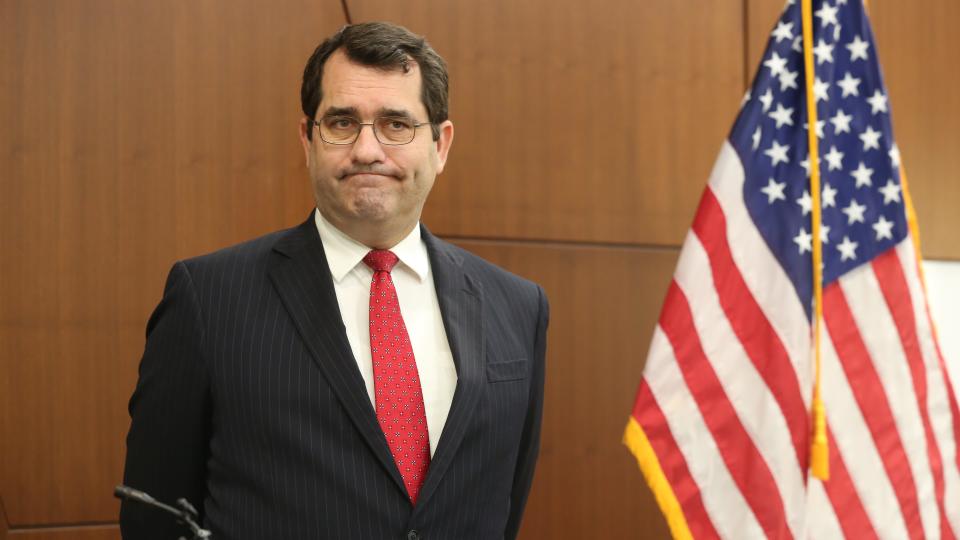
"A parent who decides that they have a sincerely held belief that this vaccine is dangerous for their child, or anybody who believes the vaccine is dangerous, in any case, should be believed," Thompson said.
O'Shea asked Thompson to provide an example of schoolchildren being questioned about religious beliefs in connection to the vaccine schedule.
"Were I given time, I'm sure I could come up with all sorts of examples," Thompson said.
"This was a clinical trial being conducted on the general public, and we cannot force that sort of vaccination on people," Thompson said, citing the lack of full FDA approval for COVID-19 vaccines for younger children.
"So that's a no, we don't know of any situation where a student or parent has been denied that in the schools," O'Shea said.
A recent public opinion survey commissioned by Nurture KC found overwhelming support for wellness vaccines.
"It's really scary to think that we're in a society that's going to bring back measles and polio and whooping cough," O'Shea said.
More: Kansas pulls COVID vaccine ads from TV after lawmakers object to calling them safe and effective
Law enforcement enforcing quarantine orders
The Johnson County Sheriff's Office is a proponent of SB 489, though deputy sheriff Greg Smith said the support was strictly tied to a provision that would strike existing statutory authority for local health officers and the KDHE secretary to order law enforcement to enforce a quarantine or isolation order.
Smith told the public health committee that existing law could cause law enforcement to get "entangled in a dangerous situation that could place the public and law enforcement at even greater risk."
He said his research into the history of the provision turned up a 2005 bill that originally dealt with KDHE secretary appointment power before it was amended during floor debate.
"We can't find anything in the legislative record that shows that this was an independent bill anywhere," Smith said. "It was never heard in a committee that we can find. This was just a floor amendment that appeared and now has been law for 17 years in Kansas."
In fact, legislative archives from 2005 show the public health provisions that passed in HB 2264 were originally contained in SB 216, which passed the Senate 39-0 after then-Sen. Derek Schmidt moved for an emergency to advance the bill to final action.
The KDHE had requested SB 216, testifying before a Senate committee "that newly emerging diseases and the possibility of an intentional release of biological agents have increased the possibility of the use of large scale isolation or quarantine to control the spread of infectious and contagious diseases."
Testimony at the time indicated the provision was intended in part to protect the due process rights of Kansans.
Smith claims it does the opposite.
"We think that runs afoul of the Fourth Amendment," Smith said. "I think you've got some serious constitutional issues here. Our second concern is safety. Quite frankly, we don't have the type of equipment to go into a contaminated, contagious environment and forcibly move people."
Pettey asked Smith whether the statute has ever faced a constitutional challenge. Smith said no.
"As far as I know, it's never been used in the state of Kansas," he said. "Until it's used and until there's an actually ripe instance for the court, it's not going to be challenged."
"It's never been used, but it's a necessity to remove it?" Pettey asked.
"Absolutely ... you need probable cause to take somebody into custody, and somebody being suspected of having a disease does not rise to the level of probable cause," Smith said.
Sedgwick County Sheriff Jeff Easter, in written neutral testimony, said the Kansas Sheriff's Association, Kansas Association of Chiefs of Police and the Kansas Peace Officers Association support striking the language.
"Law Enforcement should not be used to enforce mask mandates and vaccine mandates," Easter told the public health committee. "We believe if any enforcement action is needed to enforce mandates; should be accomplished by a civil action not a criminal action."
The statute he addressed deals with quarantine and isolation orders, not mask or vaccine mandates.
Compensating businesses for health mandates
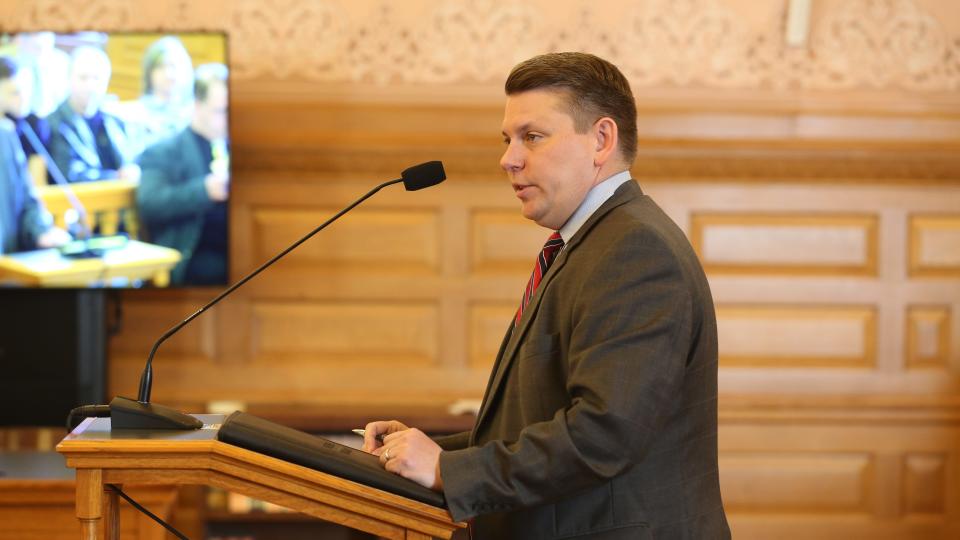
The Senate Judiciary Committee passed out two pandemic bills.
Senators performed a gut-and-go on HB 2416, dumping in compensation for property owners and reimbursing business property taxes for those harmed by government public health orders, including mask mandates and gathering restrictions.
The provisions aren't retroactive to prior orders during the pandemic. As written, the provisions would appear to require the government compensate a business that is temporarily closed because it is the source of an outbreak of any infectious disease.
The Kansas Chamber backs the idea, as does attorney Ryan Kriegshauser, who has spearheaded lawsuits challenging COVID-19 policies.
"When you're looking at shutting down a business, it's not saying you can't do that," Kriegshauser said of the bill. "It's just saying you have to pay for it. So now it's a cost-benefit analysis for the unit of government to decide is it worth it? I think there'd be very shutdowns."
The committee also passed an amended version of SB 541, addressing a host of mitigation measures.
Kriegshauser argued against government mandates.
"Our approach this entire time is trying to get units of government to act reasonably," he said.
Sen. Dennis Pyle, R-Hiawatha, compared public health mandates to the Russian invasion of Ukraine.
We have a prime example today of government out of control," Pyle said. "That's Mr. Putin. We see what can happen when government wants to mandate their will on people."
Banning mask mandates, vaccine exemptions
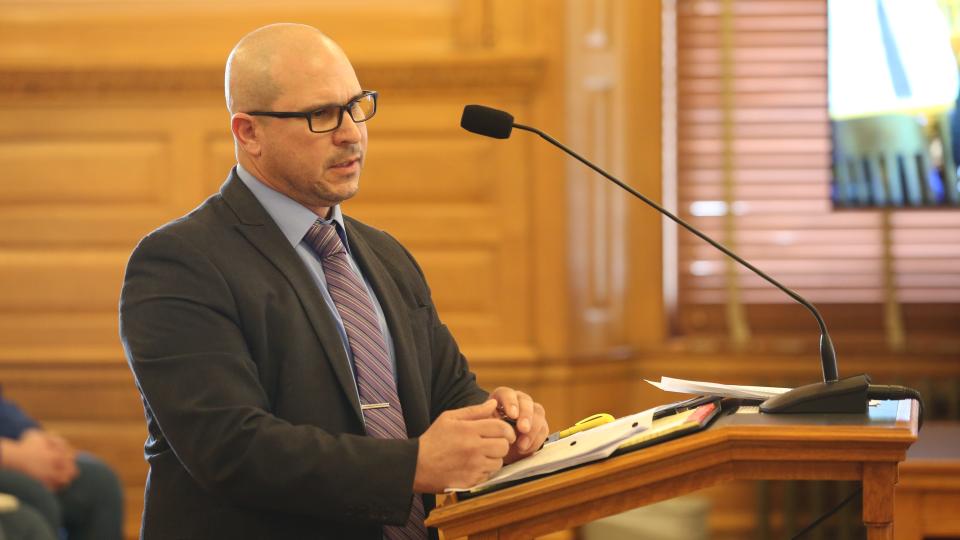
Rep. Trevor Jacobs, R-Fort Scott, raised religious liberty concerns with the original language of SB 541.
"I don't like the idea of giving government agencies, whether it's the governor or local entities, the ability to just shut down churches," he said.
Sen. Beverly Gossage, R-Eudora, later amended the bill to prohibit the governor and other governmental entities from restricting religious worship through emergency powers, even if there were a disease outbreak at a church or another worship center.
"If people want to gather in a place and subject themselves to a potentially deadly pandemic, and it's their exercise of religion, let them do that," said Sen. David Haley, D-Kansas City.
Sarah Irsik-Good, of the Immunize Kansas Coalition, sympathized with parents who complained to lawmakers about public health measures. She is the mom of a 13-year-old girl who has struggled with school during the pandemic, including depression and quarantines while not sick.
"I think it's important for you to know that I identify very personally with every proponent of this bill," Irsik-Good said, who testified against the bill, especially its vaccination provisions.
She said the implications would extend beyond this pandemic.
"When you redefine a religious belief to be something other than an actual religious belief, rather than adding a philosophical or conscientious objection of its own, you impact every public health provision that currently allows for religious exemption," she said.
The bill makes it a misdemeanor crime for schools to inquire about a student's COVID-19 vaccination status or to discriminate against unvaccinated students, such as having them sit apart from vaccinated students, get tested or requiring them to wear a mask if exposed.
Schools imposing longer quarantines for unvaccinated students "is basically depriving education based on vaccination status," said Kriegshauser, the attorney.
Public school advocates took issue with private schools not being subjected to the same restrictions on health policies.
Responding to Kriegshauser's testimony about Salina public schools holding secret meetings on public health policies, Sen. Molly Baumgardner, R-Louisburg, alleged open meeting violations and suggested addressing the issue through legislative action.
Such advisory committees became commonplace for schools operating during the pandemic. But AG Schmidt's office opined that holding meetings in secret was OK because the groups aren't subject to the Kansas Open Meetings Act.
The AG's office determined the Pandemic Medical Advisory Team at the University of Kansas was "akin to a staff meeting," according to a letter obtained by the Lawrence Journal-World.
Senators passed SB 541 out of committee, despite an unanswered question raised by Sen. Elaine Bowers, R-Concordia, that it could unintentionally affect animal agriculture. Judiciary committee chair Sen. Kellie Warren, R-Leawood, directed Bowers to further investigate the issue and offer an amendment on the floor if warranted.
More: Fear of COVID lab leak theory leads Kansas lawmakers to 'transparency' bill targeting NBAF, K-State
A world of rules
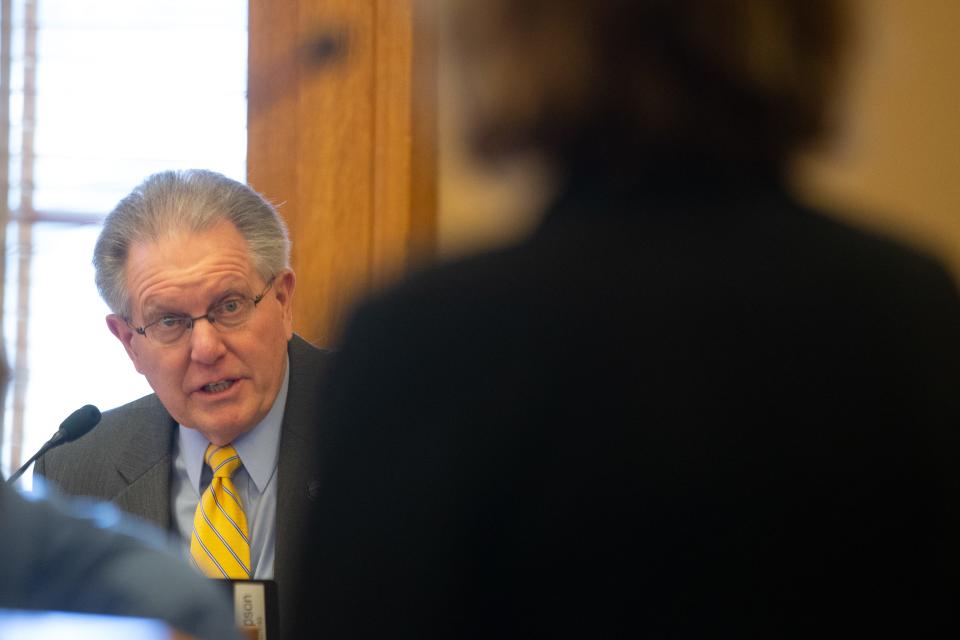
Jay Hall, general counsel for the Kansas Association of Counties, warned the public health committee against removing KDHE's authority to coordinate a disease response among local health departments. SB 489 has not passed out of committee.
He noted that committee attendees were in Topeka for the bill hearing, but most people in the room likely live outside the capital city.
"When you go back to your county of where you live, if you happen to carry an infectious or contagious disease with you, your county may not know that, oh that actually came from Shawnee County," Hall said. "They may not be able to coordinate."
Rural areas would be at a disadvantage because their smaller health departments rely on assistance from the state, Hall said. He also expressed concern the bill would strip health officials of limiting gatherings if there were an outbreak of disease.
"These statutes were put in place because we do have concerns about things like tuberculosis spreading," Hall said.
More: Should KDHE secretary follow CDC? Answer may doom nominee Janet Stanek to lead Kansas health agency.
Thompson suggested it would be better for authorities to provide information and let people make their own health decisions.
"We also live in a world that has a lot of rules, and those rules get enforced," Hall replied. "Most of us drove here today, and there were rules that we had to abide by when we were driving."
Ivermectin as off-label drug
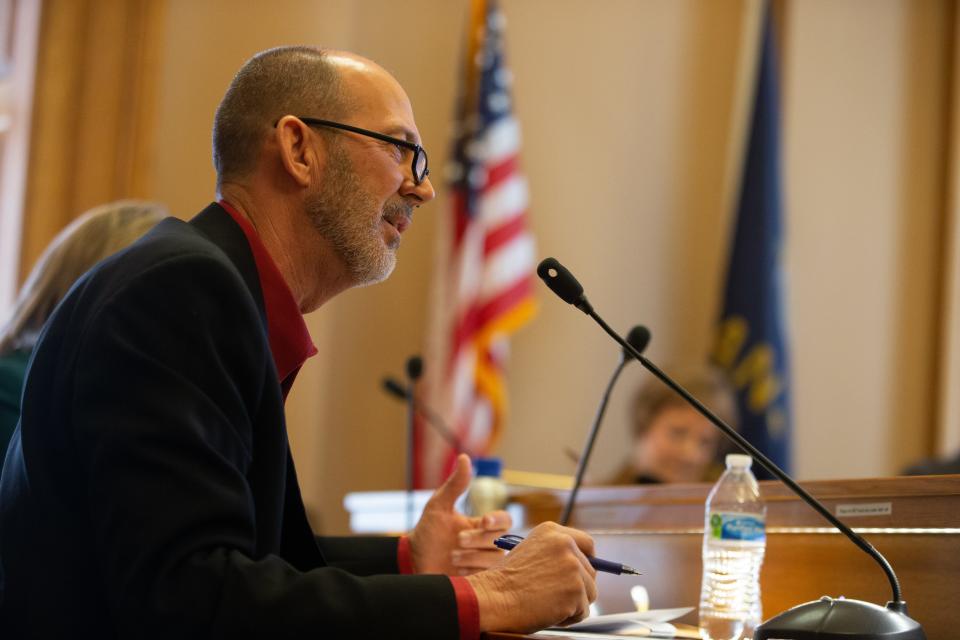
Medical experts say the preponderance of evidence show ivermectin and hydroxychloroquine offer no benefit against COVID-19. Regardless, some a handful of politicians have promoted the drugs for off-label use.
Existing law allows doctors to prescribe off-label, but supporters of the unproven drugs have complained of difficulty finding pharmacists willing to fill the prescriptions.
Senators on the public health committee again worked HB 2280, the gut-and-go version of Sen. Mark Steffen's ivermectin and hydroxychloroquine plan. It is combined with blocking health board investigations connected to the pandemic and an unvetted provision expanding exemptions to all childhood wellness vaccines.
Steffen, R-Hutchinson and an anesthesiologist, organized a symposium with the anti-vax organization Kansans for Health Freedom earlier this month to promote the unproven drugs. Steffen has admitted he is under investigation by the health board in connection to the pandemic.
An amendment from Sen. Gossage eliminated the retroactive piece on blocking health board investigations and undoing discipline connected to COVID-19.
A second Gossage amendment reworded the requirement for pharmacists to fill off-label prescriptions to treat or prevent COVID-19. The change permits pharmacists to refuse to fill a prescription if they discover an issue, such as a contraindication with another medicine or an incorrect dosage.
The bill stalled in the Senate committee amid a disagreement over the vaccination provision.
The House chamber on Wednesday debated SB 286, which extended expiration dates for certain aspects of the government pandemic response. Lawmakers added in legal immunity provisions requested by hospitals and created new crimes for interfering with hospital operations.
The bill passed the House with bipartisan support.
More: New version of ivermectin, hydroxychloroquine COVID prescription bill approved by Kansas lawmakers
Rep. Tatum Lee, R-Ness City, objected to the liability protections. She accused her local hospital of denying patients the "life-giving drug" ivermectin. She said they should be held liable for patient deaths: "That's on the hospital."
"We should be listening to the families when they say they want these off-label drugs," she said.
Jason Tidd is a statehouse reporter for the Topeka Capital-Journal. He can be reached by email at jtidd@gannett.com. Follow him on Twitter @Jason_Tidd.
This article originally appeared on Topeka Capital-Journal: Kansas lawmakers debate COVID-inspired attacks on public health laws
